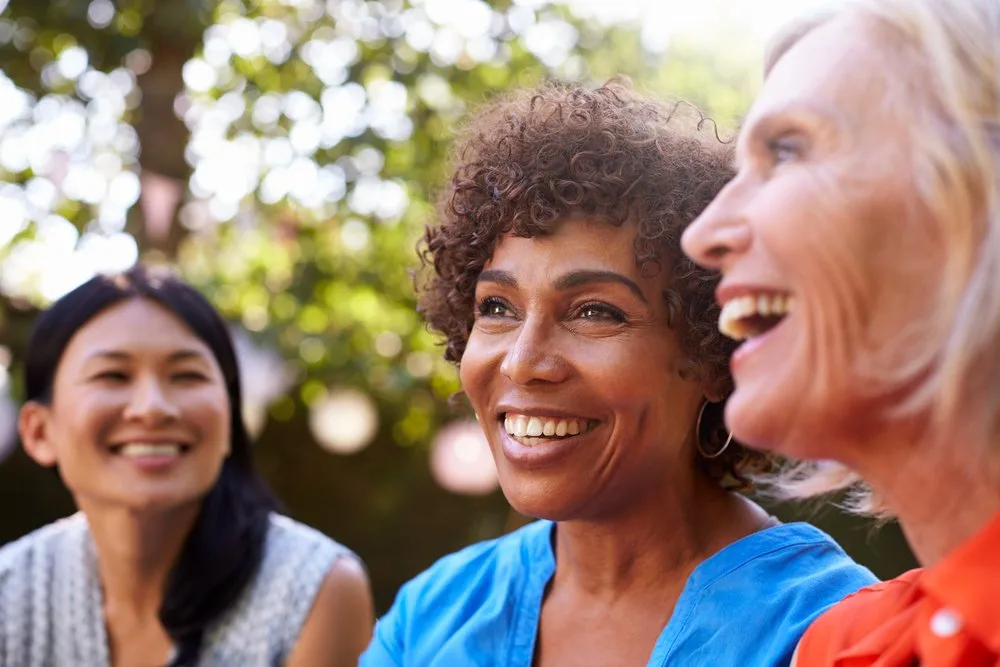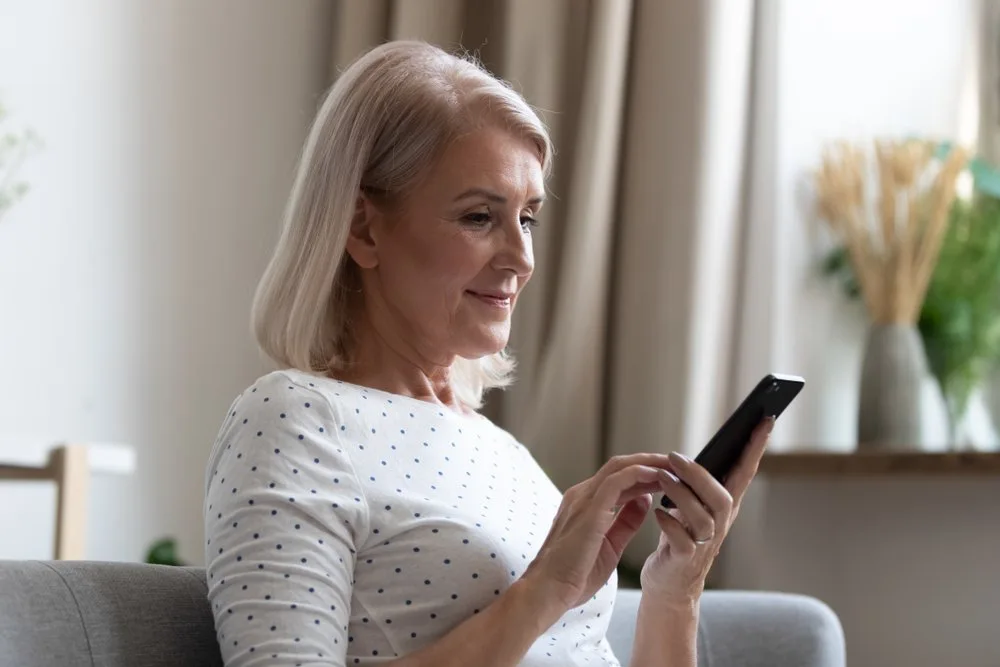Who wouldn’t want to live forever? Or at least age gracefully and be healthy as a fiddle by the time they reach their later years? The good news is that there’s been an increase in life expectancy over the past few years but the bad news is that our life choices can hinder our plan to age as well as the Okinawans.
The fact is while good habits such as exercising can improve our lifespan, bad habits can shorten your life much more quickly. That said, if you want to live to be 100, then you’re going to need to stop doing any and all the below habits.
15 things to stop doing if you want to live longer
1. Stop relying on your genes
Yes, your grandparents may be reaching their 120th birthday and be as active as your nieces and nephews, but that doesn’t necessarily mean that your future will be the same. According to a popular Scandinavian study, your genetics are only responsible for about one-third of your lifespan potential.
For those who have a family history of chronic diseases, this is great news because it means that you can take control of your future by taking control of your health. Furthermore, you can focus your attention on lifestyle factors that you can control as opposed to the genetics that you can’t control.
2. Stop eating junk
Seriously, stop it.
The fact is that your favorite snacks, fast food meal, and other processed foods are rich in sugar, salt, and trans fats – all of which greatly increase your risk for chronic diseases that include cancer, heart disease, hypertension, and diabetes.
You are what you eat and if you want to be the epitome of longevity, then you need to eat foods that improve your lifespan, not shorten it. Adopting a plant-based diet is a great way to ensure that your body gets all the nutrients it needs to keep itself healthy in the coming years. Having said that, eating healthy doesn’t mean that you need to say goodbye to all of your favorite treats. They can still be enjoyed, just in moderation.
3. Stop Staring at Your Phone All Day
Technology really is a blessing and a curse. We spend so much time on our phones and other devices that we fail to see its impact on our health.
For instance, a study published in the Journal of Social and Clinical Psychology saw a strong link between social media and depression as well as loneliness. Moreover, the researchers also noted that those who cut back on their social media use saw clinically significant falls in depression and in loneliness over the course of the study.
If you really want to cut back on your social media use, try the below tips
- Turn off push notifications
- Keep your phone in a different room
- When out with friends, put all your phones in a pile in the middle of the table
4. Stop avoiding the doctor
Prevention really is better than cure, which is why it’s important to go for your regular check-ups and screenings. Not only will this provide you and your doctor with insights into your health, but if they notice a cancerous tumor or alarmingly high blood pressure levels, they can take the appropriate actions to protect your health before it becomes something more serious.
5. Stop smoking
Need we say more?
According to the Centers for Disease Control and Prevention (CDC), smoking can rob you of a decade of your life. However, quitting smoking before the age of 40 can reduce your risk of dying from smoking-related deaths by almost 90%.
Yes, quitting smoking can be extremely hard to do but it is possible, and definitely worth it. Whether you’re partaking in group therapy, hypnosis, or simple nicotine patches, it is possible and you’re going to feel so much better when you accomplish your goal.
6. Stop sitting so much!
According to findings published by the European Society of Cardiology, two decades of a sedentary lifestyle may double one’s risk of premature death, when compared to being physically active.
A 2015 study published in the American Journal of Clinical Nutrition had similar findings, showing that lack of exercise was associated with an increased risk of early death, regardless of the person’s weight.
Exercise can help to improve your longevity in a number of ways. It strengthens your heart health, boosts your immune system, and reduces the risk for a number of chronic diseases. Therefore, if you really want to age as well as your grandparents, then turn off the Netflix and throw on those running shoes.
7. Stop being a loner
Considering the amount of ‘me-time’ that was spent during lockdown, it’s quite clear how important social connections are. The fact of the matter is, staying social is one of the best ways to increase your longevity as it helps to reduce stress levels as well as strengthen your immune system.
According to a study published in the Proceedings of the National Academy of Sciences, the more social ties people have at an early age, the better their health is at the beginnings and ends of their lives. A Harvard study also found that women in their 60s with strong social connections were more likely to reach age 85 or older. Moreover, a meta-analysis published in PLoS Medicine revealed that social ties can boost one’s longevity by 50%.

8. Stop sleeping poorly
According to sleep experts, sleeping less than 5 hours a night on average reduces your life expectancy by 15%.
The fact of the matter is, a good night’s sleep is one of the best ways to improve and boost your longevity. Just think about how great you feel after a night of deep and restful sleep. If you’re having trouble sleeping, try keeping your bedroom dark, placing your phone on sleep mode, meditative exercises before bed, or even using essential oils.

9. Stop stressing
Granted, it’s been a bit of a stressful year. However, when you consider the fact that stress can take 2.8 years off of your life, perhaps adopting some stress-relieving techniques wouldn’t be the worst thing to do.
There really is no point in stressing about the things you can’t control. That said, if you’re battling with reducing your stress levels, you can try relaxation techniques that include meditation, breathing exercises, journaling, listening to your favorite song, and even gardening.
10. Stop drinking so much
We all enjoy a glass of wine now and then (in fact drinking alcohol has bene linked to a longer lifespan) but too much of everything can be detrimental to your health, and that certainly includes alcohol.
Excessive drinking, be it binge drinking or heavy drinking, can greatly shorten your lifespan. In fact, a study published in The Lancet found that having 10 to 15 alcoholic drinks every week could shorten a person’s life by between one and two years.
11. Stop neglecting your teeth
A good smile can help you feel better about yourself, but it can also give insights into your overall health. Poor oral health, be it bad breath, tooth decay, and gum disease, can be a sign of something more serious so it’s important to maintain healthy teeth and gums as they can actually help protect you from serious health problems.
12. Stop avoiding the sun
As long as you’re wearing sunscreen and protective clothing, the sun can actually help to boost your longevity and not hinder it. A study published in the Journal of Internal Medicine found that participants with the greatest sun exposure received an extra 7 months to 2 years of life.
Sun exposure helps to trigger the production of vitamin D and vitamin D can actually ensure longevity by preventing the accumulation of toxins linked to age-related diseases (1).
That said, when you’re out in the sun, make sure to use a broad-spectrum sunscreen with an SPF of at least 30 and to top it off with long sleeves, long pants, a wide-brimmed hat, and UV-protective sunglasses.
13. Stop slouching!
Considering the amount of time that we spend hunched over, in front of a computer, our posture may not be the best, and that may be affecting our lifespan. According to a Japanese study, poor posture has a significant impact on the quality of life as well as life expectancy.
Good posture can reduce the stress on your muscles and joints and this can keep your spin happy. If you’re battling with poor posture, make sure to use a chair with good back support and to keep your spine straightened, shoulders back and your head high.
14. Stop wasting your brain power
Use it or lose it.
If you really want your brain to age as well as your body, then it’s important to keep it active and healthy.
Keep your brain happy by regularly reading and by learning something new every day. You can also engage in brain games that include Sudoku, crosswords, and other problem-solving activities.
15. Stop hating your job
If you’re in a stressful work environment, you’re may find yourself turning to coping mechanisms that aren’t exactly the best thing for your health. This can include smoking, excessive alcohol consumption and even indulging in sugary treats.
A 2015 study published in the American Journal of Clinical Nutrition had similar findings, showing that lack of exercise was associated with an increased risk of early death, regardless of the person’s weight.
Ikigai is a term used by the Okinawans that places an emphasis on having a life purpose. Having a productive and meaningful career is a great way to ensure your longevity and it’s important to evaluate where you are in your career if you feel that your job has begun to drastically affect your health.
Small changes matter
As much as huge changes can have the most dramatic and obvious effect on your life, they are rarely sustainable. If you really want to take control of your health, it’s important to start small. You don’t have to tackle all 15 of the aforementioned things if you want to protect your health but rather address each habit one by one. Before you know it, you will have completely turned your life around and significantly improved your health.











![women [longevity live]](https://longevitylive.com/wp-content/uploads/2020/01/photo-of-women-walking-down-the-street-1116984-100x100.jpg)










